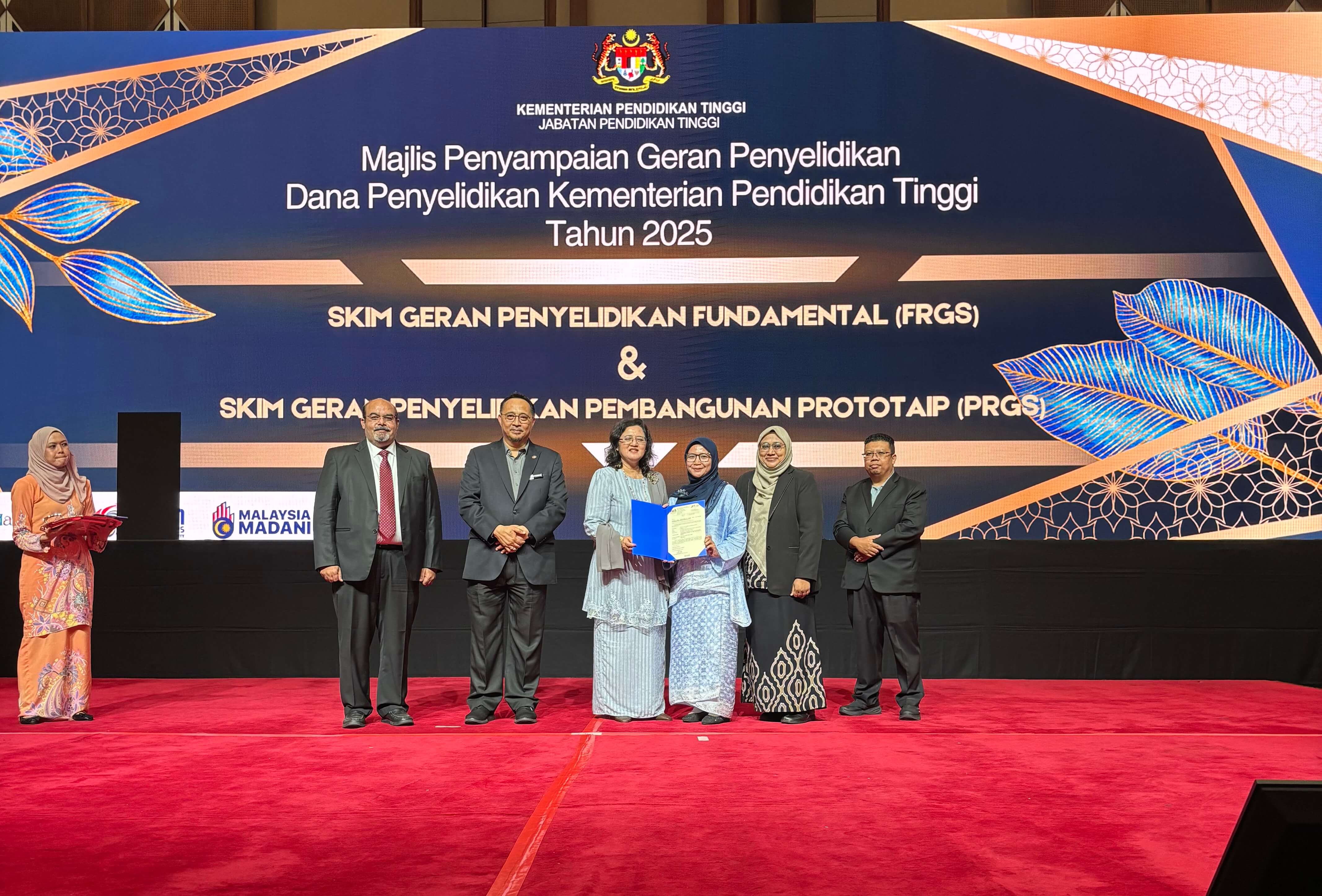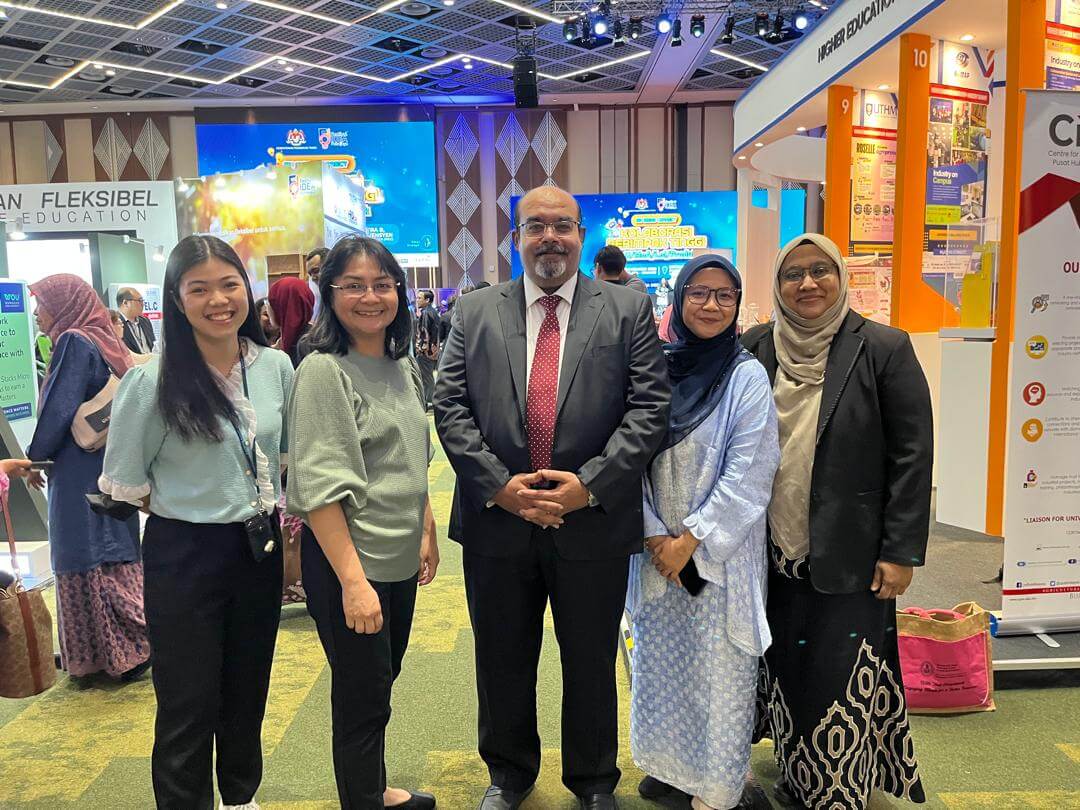
The Asia Pacific University of Technology & Innovation (APU) reinforces its reputation as a research-intensive institution, having once again secured recognition through the Fundamental Research Grant Scheme (FRGS) 2025 award.
The university’s unwavering commitment to research that matters—both academically and socially—was showcased at the Grant Award Ceremony held on 6 November 2025 at the Putrajaya International Convention Centre (PICC).
The event, hosted by the Ministry of Higher Education (MOHE) and presided over by Datuk Prof Dr Azlinda Azman, Director-General of Higher Education, honoured Malaysia’s top-performing researchers and institutions dedicated to pioneering inquiry and innovation.
APU is proud to announce that it has been awarded a grant of RM 90,200 for a ground-breaking research project entitled “A New Horizon of Muslim-Friendly Tourism Index (MFTI): A Mixed-Method Research for Scale Development in Malaysia”.

This project is led by Assistant Professor Ts Dr Noraini Ahmad from the School of Business (SoB), with the support of a distinguished interdisciplinary team: Professor Dr Kashif Hussain (School of Business), Associate Professor Dr Hajah Rohana Sham and Dr Ihtisham Ullah from APU’s Strategic Research Institute, alongside external collaborators Professor Dr Hafiz Hanafiah of Universiti Teknologi MARA and Professor Dr Samer Yaghmour of King Abdulaziz University.
This project embodies APU’s aspiration not only to contribute to the body of knowledge but to generate actionable, culturally-sensitive frameworks that bolster Malaysia’s tourism ecosystem.
The Muslim-Friendly Tourism Index (MFTI) seeks to create a comprehensive, multi-dimensional measurement tool that captures the expectations and experiences of Muslim travellers, offering industry stakeholders and policy-makers robust insight into evolving needs and preferences. In doing so, the research responds to the qualification criteria of the FRGS—research that generates new ideas, models or processes, improves existing methodologies, or addresses community and national strategic agendas.
Of the twelve proposals submitted by APU for the FRGS 1-2025 cycle, Dr Noraini’s submission was selected as the successful awardee—a testament to the university’s research competitiveness, thematic relevance and interdisciplinary strength.
The achievement reaffirms the culture of inquiry at APU, where rigorous scholarship is coupled with pragmatic relevance and societal impact. The FRGS, administered under the aegis of MOHE, emphasises research that develops high-quality human capital and accelerates discoveries and innovations.
APU’s commitment goes beyond securing funding, as it encompasses nurturing an environment where research excellence flourishes, collaboration across disciplines and institutions is customary, and outcomes translate into tangible contributions for industry, community and nation.
In harnessing its multidisciplinary resources—from business and tourism to cultural studies and policy analysis—the university is well positioned to drive forward the MFTI project and its deliverables with rigour, credibility and relevance.
This milestone not only strengthens APU’s research credentials but also amplifies Malaysia’s global positioning in the evolving field of Muslim-friendly tourism—a sector of growth, diversity and strategic importance. It marks a proactive step towards designing frameworks that can guide tourism operators, destination marketers and policymakers in enhancing inclusivity, cultural resonance and service excellence.
“At APU, we believe that research must not only advance knowledge but also serve society and drive change. This FRGS award empowers us to lead in developing the Muslim-Friendly Tourism Index—a pioneering initiative that bridges academic insight and industry application in Malaysia and beyond,” said Professor Dr Ho Chin Kuan, Vice-Chancellor of APU.
“We extend our heartfelt congratulations to Dr Noraini and the research team, and look forward to the meaningful outcomes this endeavour will generate for Malaysia’s tourism sector and the broader scholarly community,” concluded Prof Ho.





 +60173309581
+60173309581